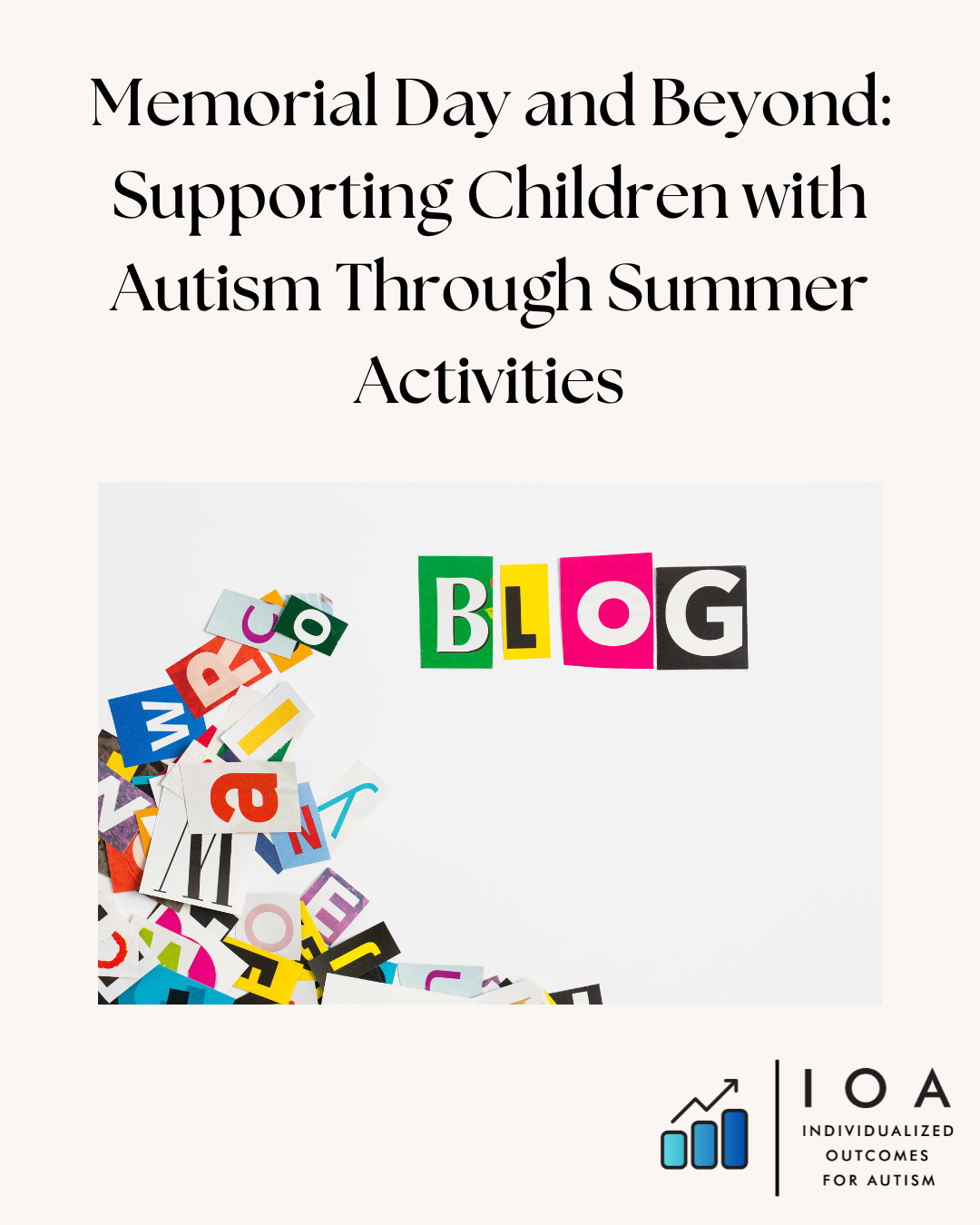Memorial Day and Beyond: Supporting Children with Autism Through Summer Activities
By Angela Khater, MA, BCBA | Clinical Director at IOA
As Memorial Day approaches, marking the unofficial start of summer, our team at IOA, wants to share practical strategies for helping children with autism navigate the exciting but sometimes challenging seasonal activities ahead.
Preparing for Parades and Community Events
Memorial Day parades and celebrations can be wonderful community experiences, but they may present unique challenges for children with sensory sensitivities:
Pre-exposure preparation: Show your child pictures or videos of parades beforehand so they know what to expect
Noise management: Consider noise-canceling headphones or earplugs for sensitive ears
Viewing strategy: Arrive early to secure a spot away from the loudest areas (like bands or sirens)
Exit plan: Identify quiet areas nearby where your child can take a break if needed
Visual schedule: Create a simple schedule showing the sequence of events (travel, parade, lunch, home)
Comfort items: Bring favorite fidgets or comfort objects to help with regulation
Safety Skills for Summer Activities
Summer brings new safety considerations as children spend more time outdoors:
Water safety: Use visual supports to teach and reinforce water safety rules. This is also a good time to enroll your child in swimming classes.
Sun protection: Practice applying sunscreen through consistent routines
Identification: Ensure your child carries identification or wears an ID bracelet for crowded events or consider an air tag.
Meeting points: Establish and practice finding a meeting spot if separated
Heat management: Teach recognition of thirst and overheating signs, scheduling regular water breaks
Our therapists have been working with many of our children on these important summer safety skills, using visual supports, social stories, and consistent practice during therapy sessions.
Navigating Family Gatherings and BBQs
Holiday gatherings often mean changes in routine and unfamiliar social expectations:
Food flexibility: If your child has food sensitivities, bring preferred options while encouraging exploration of new foods at their pace
Quiet space: Identify a low-stimulation area where your child can take breaks when needed
Activity options: Bring preferred activities that can be enjoyed alongside peers (bubbles, simple games)
Arrival timing: Consider arriving early when gatherings are less crowded and overwhelming
Social scripts: Practice simple greetings and conversation starters before the event
Visual supports: Create a visual schedule showing the sequence of the gathering
Managing Schedule Changes
The transition to summer often brings significant changes to daily routines:
Visual calendars: Create a summer calendar highlighting special events and activities
Consistent elements: Maintain key routine elements (morning routines, bedtime routines) even on special days
Transition warnings: Use timers or countdowns to signal transitions between activities
Preview changes: Discuss schedule changes ahead of time using social stories or visual supports
Balanced scheduling: Alternate between high-stimulation activities and quieter recovery time
Communication Supports for Summer Fun
Effective communication during exciting events helps prevent frustration:
Visual choice boards: Create portable communication tools for outings
Emotion identification: Practice identifying and expressing feelings about new experiences
Request cards: Bring cards for common needs (bathroom, water, break)
Social cues: Practice reading social cues for games and activities with peers
Check-in system: Establish a simple way your child can signal when they need support
Before the holiday weekend, ask your child’s BCBA about personalized strategies for your family’s specific Memorial Day plans. We’re happy to provide individualized visual supports or social stories to help make your celebrations successful and enjoyable for everyone.
From all of us at IOA, we wish you a safe, fun, and meaningful Memorial Day weekend!

